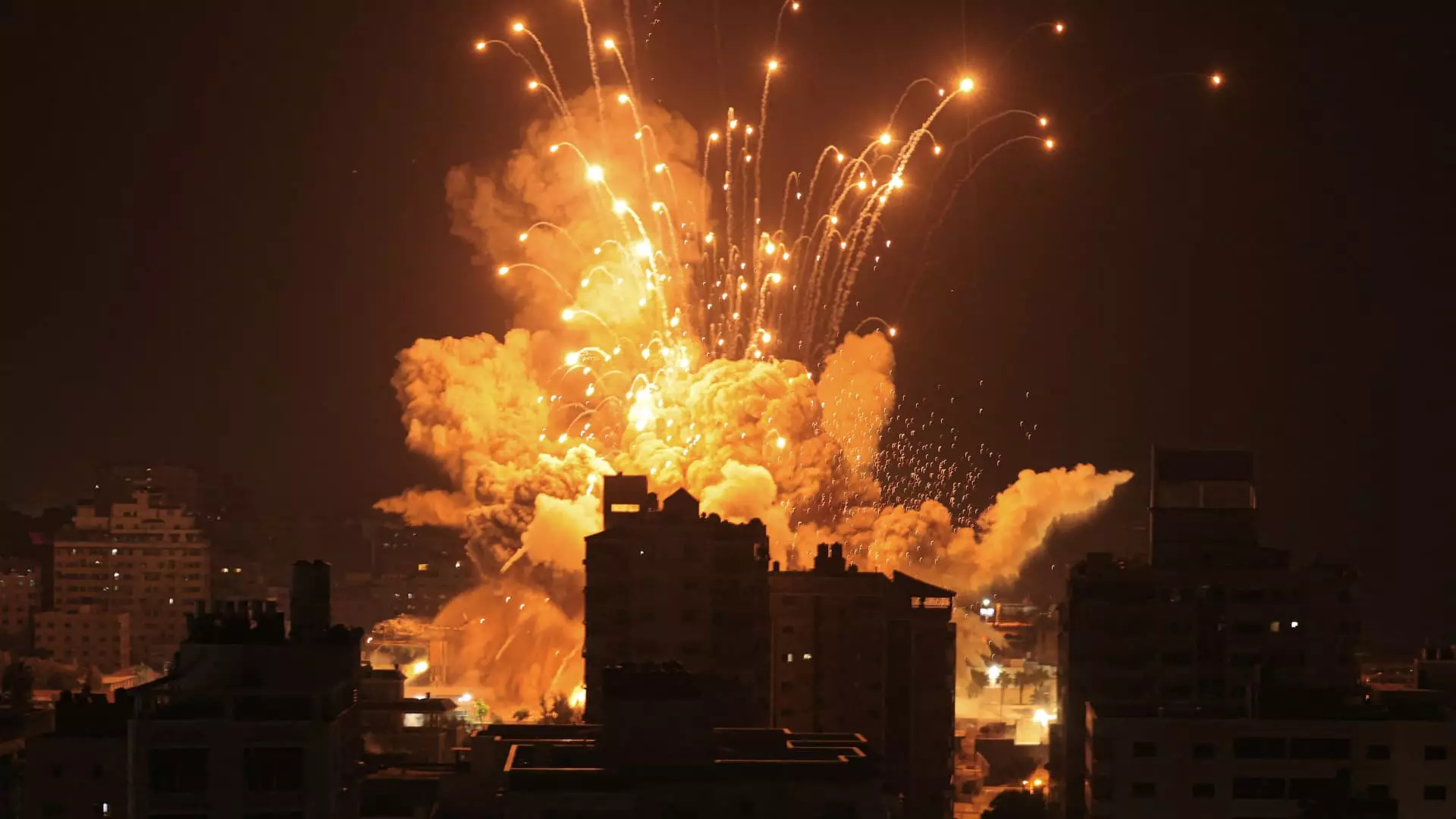The situation in the Gaza Strip has reached a critical stage, with Palestinian health authorities warning of the dire consequences for the region’s health services. As the conflict between Israel and Hamas continues, the Gaza Strip’s single operational power plant has run out of fuel, exacerbating an already dire situation. With Israel imposing a complete siege on the region, essential supplies, including medical resources, are no longer reaching the more than two million inhabitants of Gaza. This has led to a severe strain on the healthcare system, jeopardizing the health and wellbeing of the population.
According to the Israeli Defense Forces, they have conducted strikes on over 2,600 “terrorist targets” within the Gaza Strip. While the IDF claims to be targeting Hamas militants, reports indicate that civilian infrastructure, including the Islamic University, has also been hit. The destruction of the university, which was allegedly being used as a training camp, not only disrupts education but also cripples the region’s ability to provide healthcare services. The targeting of civilian sites, such as a music festival, further demonstrates the indiscriminate nature of the violence and the devastating impact it has on the civilian population.
Recognizing the urgent need for decisive security decision-making, Israeli Prime Minister Benjamin Netanyahu and opposition leader Benny Gantz have agreed to form an emergency government. This coalition government aims to stabilize the situation and provide a unified response to the ongoing conflict with Hamas. With tensions escalating and the death toll rising, it is crucial for the Israeli leadership to effectively address the crisis and work towards a sustainable resolution.
The international community is also intervening to address the rapidly deteriorating situation. The United States, represented by Secretary of State Antony Blinken, is set to engage with Israeli officials to explore potential solutions. Discussions are underway for the establishment of a humanitarian corridor from the Gaza Strip, in partnership with Egypt, to ensure the safe passage of essential supplies and aid to civilians. The United Nations has raised concerns about the increasing damage inflicted on civilians and underscores the urgency of finding peaceful alternatives to prevent further casualties.
Beyond the immediate humanitarian crisis, the escalating conflict in Israel and Gaza has the potential to impact global oil markets. The Middle East plays a vital role in oil production, and any instability in the region generally leads to price fluctuations. With the Israeli crisis unfolding, top officials warn that oil markets could be affected by the heightened tensions and increased risk in the region. This highlights the interconnectedness of geopolitical events and the potential repercussions they have on the global economy.
The escalating conflict between Israel and Hamas is pushing the health services in the Gaza Strip to a critical stage. The destruction of critical infrastructure, the imposition of a complete siege, and the disruption of essential supplies are devastating the region’s healthcare system. It is crucial for international actors to step in and alleviate the crisis, ensuring the safe passage of aid and the protection of civilians. Additionally, the broader implications of the conflict on the global oil markets highlight the need for a peaceful resolution to avoid further economic disruptions.


Leave a Reply